Rogue Ales & Spirits | Honey Kolsch
Of all the buzzworthy beer categories today, one earns that buzz(zzzz) more than others. Honey beers are growing in popularity, and they take their distinguishing ingredient from the amazing honey bee. Each honey bee worker flies hundreds of miles in her lifetime, pollinates thousands of flowers and communicates with her hivemates by dancing. One brewery from Oregon is shining a light on bees by using the sweet stuff in a quenching beer redolent of summer wildflowers.
Rogue Honey Kolsch from Newport, Oregon, is a 5.2% ABV beer brewed with Oregon wildflower honey. Based on the subtly nuanced and crisp German Kolsch style, the beer uses honey as an accent to the delicate fermentation character of Kolsch yeast, balancing floral notes, understated fruit esters, and gentle hop character in a dry, easy-drinking body perfect for hot weather.
The idea for Honey Kolsch was born on the Rogue farm. Shortly after the 2008 hops shortage, Rogue decided to start a farm to grow many of their own hops, and they began growing other ingredients as well. That led to raising bees.
Honey on the Farm
“There are very few ingredients you can grow that you can’t put in beer,” says Danny Connors, Rogue’s Innovation Brewer at their Portland pilot brewery. “Our products are ingredient-driven. If we have hops, we’re looking at an IPA. If we have bees and are making honey, let’s do something with that honey.”
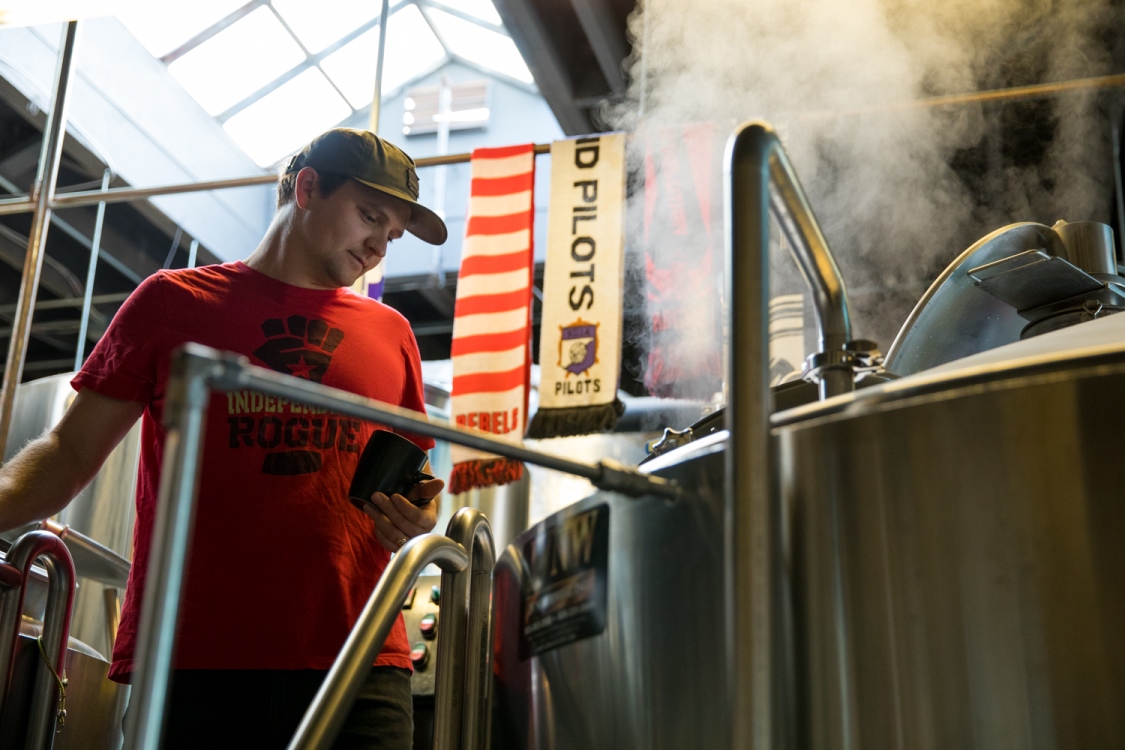
After experimenting with meads and braggots, Honey Kolsch was developed and immediately became a consumer favorite.
While Rogue was never able to make enough honey to provide everything they needed for this national brand, much of the honey in the beer came from their farm. Covid unfortunately forced them to close down much of the farm and transfer the bees to another grower. They started buying all their honey from GloryBee, an Oregon company that specializes in unique monofloral honeys from around the world. For Honey Kolsch though, Danny wanted to use classic wildflower honey with a recognizable flavor.
“If you’re going to put the name ‘honey’ on this, you want it to taste somewhat like what people think honey tastes like,” he explains. While honey made from buckwheat or coffee blossoms might be fascinating on its own, the familiar, comforting notes of the honey we all grew up with were perfect for the top-selling Honey Kolsch.
The honey gets added to the beer during the whirlpool at the end of the boil. This pasteurizes the honey without boiling off its delicate and volatile aromatics.
“You’re using this amazing product in honey that is also a very expensive product, so you want to get as much bang for your buck as you can,” says Connors.
Honey is composed mostly of simple, fermentable sugars that are held stable by honey’s low moisture level and low pH. Once the sweet stuff is diluted into unfermented beer wort and yeast is added, that yeast goes to town on the sugars and ferments them out. Many people assume honey will make a beer sweet, but the sugar is completely fermented, and the resulting beer will actually be a little lighter and drier than it would have been otherwise. Honey makes up less than 5% of the fermentable base in Honey Kolsch.
While Rogue maintains the essential simplicity of the Kolsch style, they use judicious amounts of Munich malt to gently support the honey aromatics. Despite the sugar being fermented out, the aroma of honey can still lead to a subtle sweet perception, and this is balanced by Crystal hops at 26 IBU.
A Buzzzzworthy Beer
In addition to proving popular with consumers, Honey Kolsch has earned numerous awards. Most notably, the beer took home the Best in Show gold medal at the 2020 Honey Beer Competition, an honor it had earned twice before.
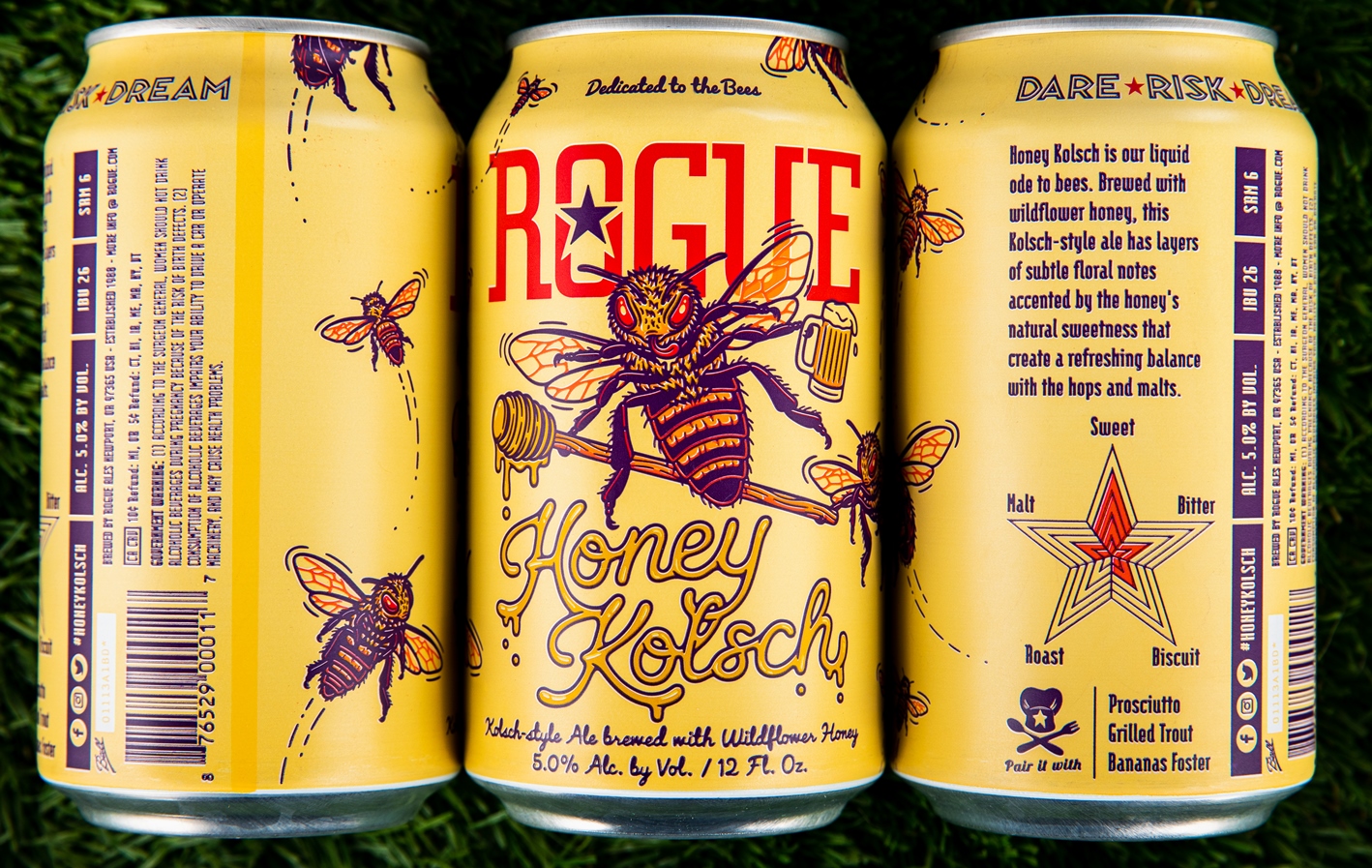
“I have to imagine I’ve tasted more honey beers than any other person in the world,” says Keith Seiz, ingredient marketing representative for the National Honey Board, which puts on the Honey Beer Competition. He’s a big fan of Rogue Honey Kolsch. “You’re still getting that crispness you want from a Kolsch. The honey doesn’t overwhelm it, it just adds these really unbelievable aromatics to it as well as the subtlest hint of sweetness. It’s my desert island beer.”
We need bees. They pollinate about a third of the foods we eat in North America, and they contribute to a diverse and healthy ecosystem. Connors at Rogue wants Honey Kolsch to not only be a delicious beer, but to shine a spotlight on the importance of our buzzy little friends.
“We’re more and more hearing the narrative about how important beers are for pollinating, not just in agriculture, but in the natural world around us. This beer is telling the story of bees, and it’s an important story to tell.”
All images courtesy of Rogue Ales.


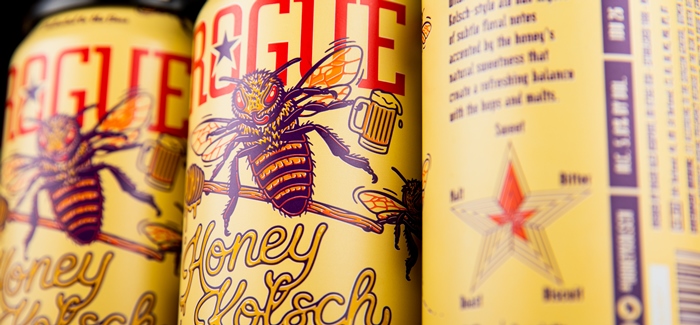

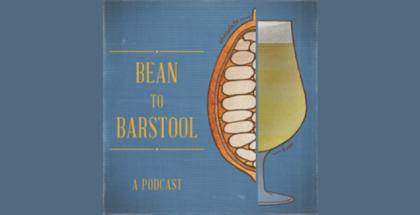
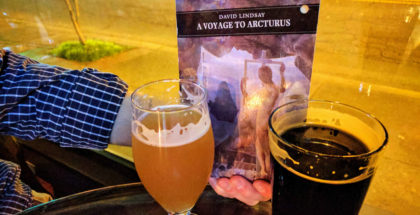
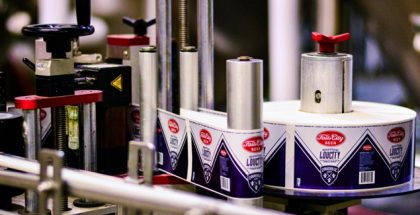
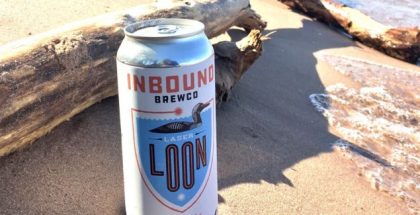
Submit a Comment